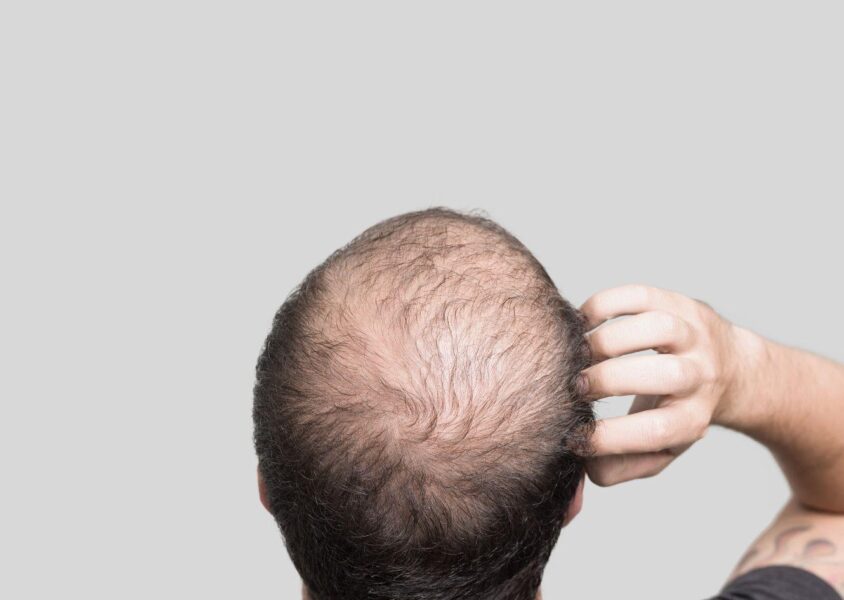Losing Your Hair Worrying About Baldness

Losing your hair can often keep you up at night but worrying too much about it can make the situation even worse! Stress and anxiety can physically affect the body, including hair loss. While it is normal to shed a certain amount of hair each day, excessive stress or anxiety can cause an increase in hair loss. If you are worried about going bald, you might lose hair even faster. Please know that baldness is a common and normal part of the aging process for many people. It is not a sign of illness or poor health.
Baldness, or alopecia, is a common condition that affects both men and women. It is characterized by hair loss from the scalp.
Androgenetic alopecia is the most common cause of hair loss in men and women. You can also call it as male or female pattern baldness. A combination of genetic and hormonal factors tend to affect the hairline and crown of the head.
Natural Loss of Hair
As people age, their bodies go through many changes, including hormonal changes. These changes can affect the hair follicles and lead to hair loss. In addition, some medications, such as chemotherapy drugs, blood thinners, and antidepressants, can cause hair loss as a side effect. Also, certain medical conditions, such as iron deficiency anemia, thyroid problems, and scalp infections, can cause hair loss.
Eliminate Stress to Stop Losing Your Hair
Severe stress or trauma can cause hair loss, although this is usually temporary, and the hair will regrow once the stress has resolved. Losing your hair can often be attributed to being stressed out.
Is it possible to slow down hair loss with age? Yes, to some extent.
How To Avoid Hair Loss
A healthy diet rich in protein, iron, and other nutrients is important for maintaining healthy hair. Foods that are good for hair health include eggs, nuts, fish, and leafy green vegetables.
It would help if you avoided physical stress on the hair. Hairstyles that pull on the hair, such as tight ponytails and braids, can cause hair loss. Try to avoid these hairstyles or wear them only occasionally to avoid losing your hair. Using a gentle hair brush can help to prevent hair breakage and loss. Avoid using brushes with metal or plastic bristles, as they can be harsh on the hair.
Heat styling, such as blow-drying, straightening, and curling, can damage the hair and lead to hair loss. If you use heat styling, use a low heat setting and avoid exposing your hair to heat for extended periods. Chemical treatments, such as coloring and perming, can damage the hair and lead to hair loss. If you use chemical treatments, try to use gentle products on the hair and follow the instructions carefully. Some hair styling products, such as gels and sprays, can build up on the hair and cause it to become dry and brittle. It can lead to hair breakage and loss. If you do use hair styling products, be sure to wash them out thoroughly and avoid using too much.
Losing Your Hair Can Be Reversed
In some cases, you can reverse or treat losing your hair, depending on the underlying cause of the hair loss. Several medications can help treat hair loss, including minoxidil (Rogaine) and finasteride (Propecia). However, these medications are most effective when used early in hair loss and may not be as effective for people with progressive hair loss.
Hair transplant surgery involves taking hair follicles from one area of the scalp and transplanting them to a balding area. This surgery can be effective for some people, but it can be expensive and may not produce natural-looking results in all cases.
Laser therapy involves using low-level lasers to stimulate blood flow to the scalp and improve hair growth. This therapy may be effective for some people, but more research is needed to determine its long-term effectiveness. Scalp micro pigmentation is a cosmetic procedure that involves injecting pigment into the scalp to create the appearance of a fuller head of hair. This procedure can be effective for some people, but it is a temporary solution and may need to be repeated over time.
Suppose you are experiencing hair loss and are concerned about the cause. In that case, it is a good idea to speak with a healthcare provider or a dermatologist. They can help to diagnose the problem and recommend the appropriate treatment. It is also important to practice stress management techniques, such as exercise, meditation, and counseling, to help reduce stress and improve overall health and well-being.